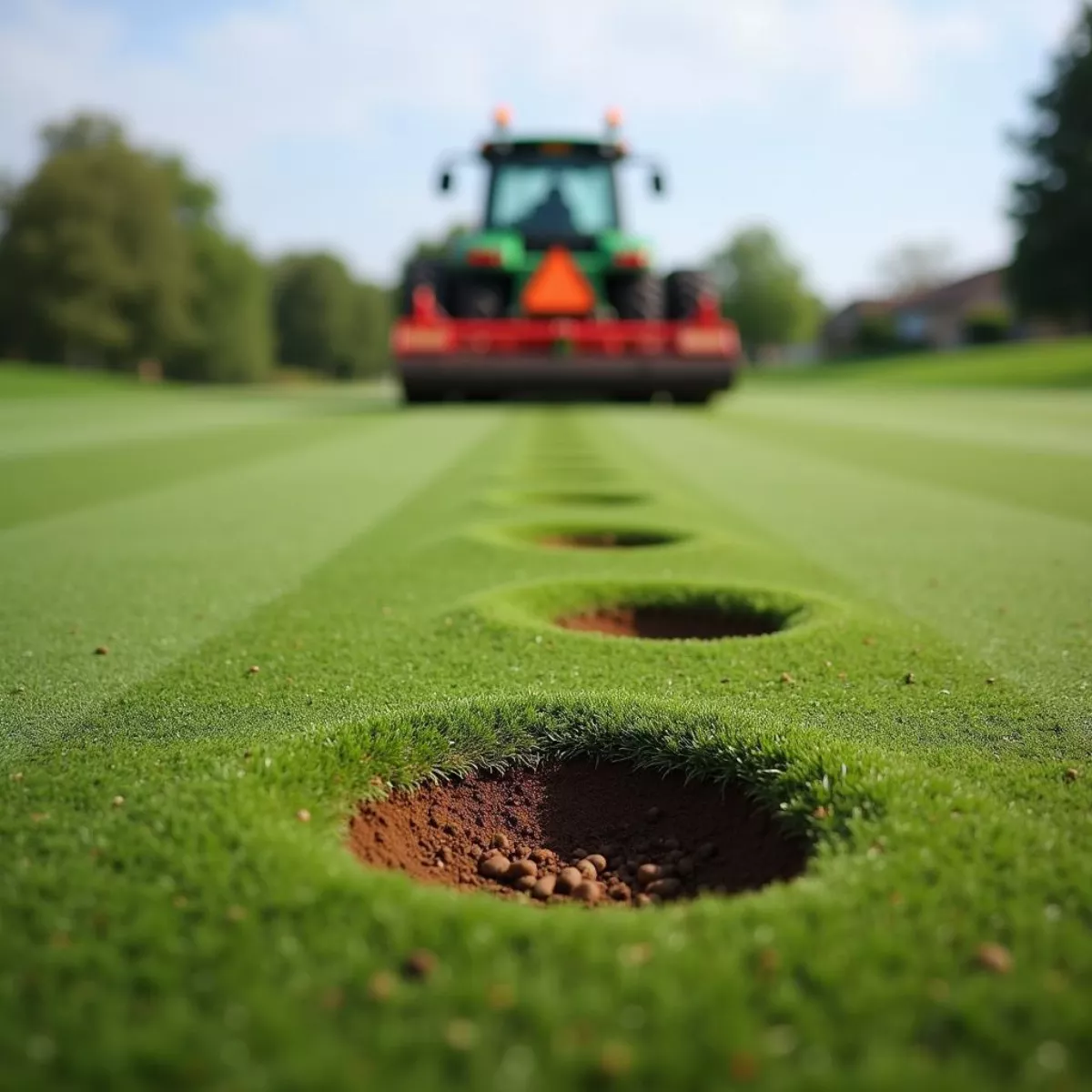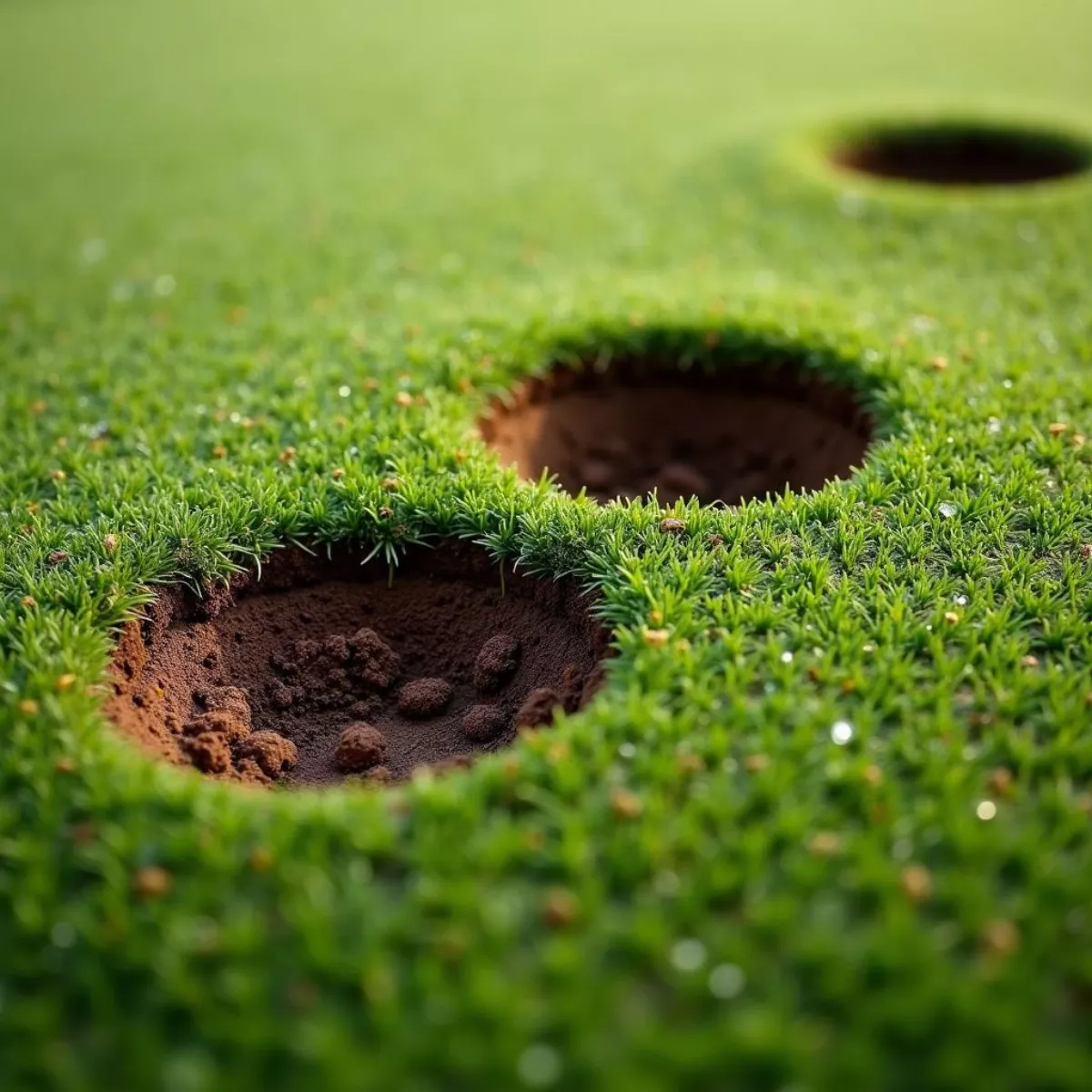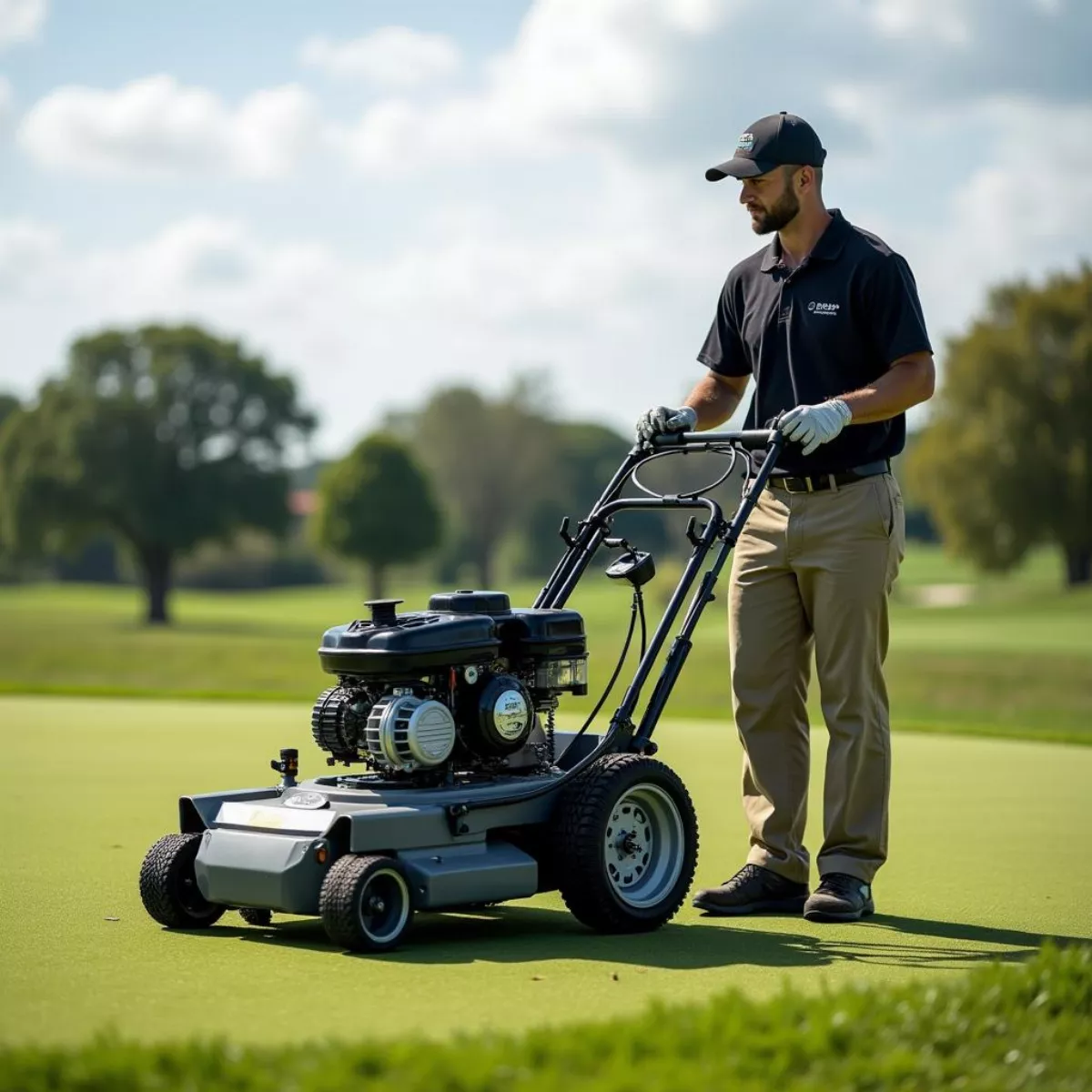how long do aerated greens take to heal

Aerating greens is a common practice in golf course maintenance and lawn care. It’s a vital step in ensuring healthy turf that can withstand the pressures of foot traffic, weather changes, and various diseases. But after aeration, a lot of people wonder: how long do aerated greens take to heal?
In this article, we’ll provide a comprehensive look at the aeration process, the factors that influence healing time, and what you can do to help your greens recover faster.
What is Aeration?
Aeration is the process of perforating the soil with holes to allow air, water, and nutrients to penetrate down to the roots. This is typically done using a machine that removes small plugs of soil—these plugs are often referred to as “cores” or “plugs.”
Why is Aeration Important?
Understanding the importance of aeration is crucial. Here are a few reasons why aeration is performed:
- Improves Soil Structure: Aeration helps reduce soil compaction, which is essential for healthy root growth.
- Enhances Water Infiltration: Air pockets in the soil allow water to permeate the ground more easily, reducing surface runoff.
- Encourages Root Growth: By allowing better circulation of air and nutrients, root systems can grow deeper and stronger.
- Reduces Thatch Buildup: Aeration helps break down thatch, the layer of organic matter that can suffocate grass roots and promote disease.

How Long Does It Take for Aerated Greens to Heal?
The healing time for aerated greens can vary based on several factors. On average, aerated greens may take anywhere from two weeks to four weeks to heal completely. Here are the primary factors that influence this healing time:
1. Grass Type
Different grass species have varying recovery rates. For example:
| Grass Type | Healing Time |
|---|---|
| Bentgrass | 2-3 weeks |
| Bermuda Grass | 2-4 weeks |
| Fescue | 3-4 weeks |
| Zoysia Grass | 4-6 weeks |
2. Weather Conditions
- Temperature: Warmer temperatures boost biological activity, speeding up recovery.
- Moisture: Adequate water after aeration encourages growth.
3. Soil Conditions
- Soil Texture: Sandy soils tend to recover faster than clay soils.
- Nutrient Levels: Well-fertilized soils promote quicker healing.
4. Maintenance Practices
Proper aftercare can significantly reduce healing time. Regular watering, fertilization, and aeration frequency also play critical roles.
5. Foot Traffic
Limit foot traffic on aerated areas immediately after the process to promote faster healing.

Tips for Speeding Up Recovery Time
- Watering: Ensure the greens are adequately moistened post-aeration. A soil moisture level of about 20% is ideal.
- Fertilization: Apply a quick-release nitrogen fertilizer to provide an immediate nutrient boost.
- Mowing: Delay mowing for at least a week after aeration to prevent stressing the grass.
- Topdressing: This involves applying a thin layer of compost or soil immediately after aeration to help heal the holes.
- Aerate at the Right Time: Late spring or early fall is often the best time to aerate for cool-season grasses.
- Avoid Heavy Traffic: Restrict traffic on greens for 2 to 3 weeks after aeration to allow sufficient recovery.
Understanding the Aeration Process
Aeration typically involves several steps:
- Preparation: Assess soil moisture levels and weather forecasts.
- Aeration: Use a core aerator to punch holes into the turf.
- Post-Aeration Care: Incorporate the tips mentioned above—water, fertilize, and avoid heavy foot traffic.
- Monitoring: Keep an eye on grass health and moisture levels.
Aeration Techniques
There are different methods of aeration, including:
- Core Aeration: Removes small plugs of soil, promoting better airflow and nutrient absorption.
- Spike Aeration: Uses spikes to poke holes in the ground without removing any soil.
Core aeration is generally more effective for aggressive recovery compared to spike aeration.

Key Takeaways
- Aerated greens typically take 2 to 4 weeks to heal, depending on various factors.
- Grass type, weather conditions, soil quality, and maintenance practices all influence recovery.
- Aftercare such as watering, fertilizing, and limiting foot traffic can significantly enhance healing speed.
- Core aeration is usually the most effective method for promoting recovery.
FAQs
1. How often should greens be aerated?
Answer: Typically, greens should be aerated at least 1-2 times per year, depending on the grass type and traffic.
2. Can I aerate greens in the summer?
Answer: It’s generally not recommended to aerate during the hottest part of summer, as heat can stress the grass.
3. What is topdressing, and why should I use it after aeration?
Answer: Topdressing involves applying a light layer of soil or compost to promote faster healing and provide nutrients.
4. How can I tell if my greens are healing properly?
Answer: Monitor grass color, growth patterns, and the presence of new shoots emerging from the aeration holes.
5. Should I fertilize immediately after aeration?
Answer: Yes, applying a quick-release nitrogen fertilizer can help expedite recovery.
6. Is it okay to use a spike aerator?
Answer: While it offers some benefits, core aeration is more effective for significant improvement in recovery speed.
7. What kind of watering schedule is ideal post-aeration?
Answer: Water lightly every day for the first week, then adjust based on moisture levels.
8. Can aeration help with disease prevention?
Answer: Yes, by improving air circulation and reducing thatch, aeration can help prevent diseases.

By understanding how long aerated greens take to heal and the factors that influence this process, you can help ensure your turf remains healthy, vibrant, and ready for action. Whether you’re maintaining a golf course or caring for your lawn, proper aeration and aftercare can lead to incredible results. Happy gardening!